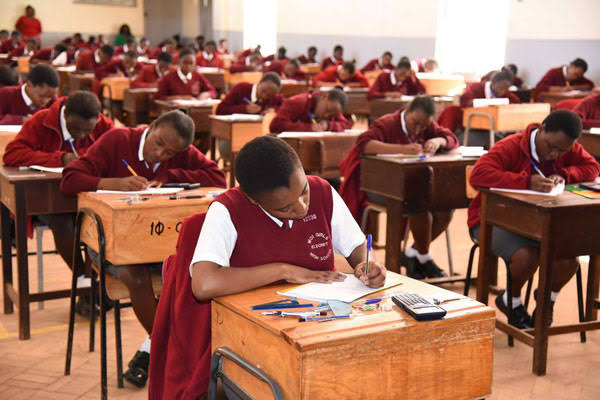The Kenya Certificate of Secondary Education (KCSE) 2024 examinations concluded in November, marking the culmination of a significant academic journey for over 965,501 candidates.
With the Ministry of Education and the Kenya National Examinations Council (KNEC) implementing a revised grading system this year, candidates eagerly await their results, set to be released in January 2025. The new system is designed to streamline grading while increasing the number of students qualifying for higher education opportunities.
This article delves into the specifics of the grading system, shedding light on how aggregate points and subject performance will determine your final results.
The Seven-Best Subject Approach
Under the new grading system, your overall grade will be calculated based on your performance in the seven best subjects you attempted during the KCSE examinations. These subjects include both compulsory and elective options, selected strategically to reflect your strengths.
Compulsory Subjects
The grading begins with the three mandatory subjects: Mathematics, English, and Kiswahili. Among these, Mathematics will automatically be included in the grading, while the better-performing subject between English and Kiswahili will also contribute to your aggregate score.
Elective and Optional Subjects
The remaining five subjects will be selected based on your highest scores from the other options you registered for. These can include core science subjects such as Biology, Chemistry, and Physics, humanities like History and Geography, and religious studies like Christian Religious Education (CRE), Islamic Religious Education (IRE), or Hindu Religious Education. Additionally, optional subjects like Art & Design, Agriculture, Home Science, or Woodwork can also be part of the selection.
Grading Scale
KNEC uses a standardized grading scale, ranging from A (12 points) to E (1 point), to assess individual subject performance. The aggregate grade, known as Aggregate Points (AGPT), is the sum of points from the seven selected subjects. The corresponding scale for overall grading is as follows:
| Aggregate Points | Grade |
|---|---|
| 81-84 | A |
| 74-80 | A- |
| 67-73 | B+ |
| 60-66 | B |
| 53-59 | B- |
| 46-52 | C+ |
| 39-45 | C |
| 32-38 | C- |
| 25-31 | D+ |
| 18-24 | D |
| 11-17 | D- |
| 07-10 | E |
This grading scale ensures that each candidate’s performance is accurately reflected, with clear distinctions between levels of achievement.
How Points Are Calculated
Each subject is graded based on its specific grading scale, which KNEC adjusts annually to account for variations in performance and difficulty levels. The table below outlines how subject grades are converted into points:
| Subject Grade | Points |
|---|---|
| A | 12 |
| A- | 11 |
| B+ | 10 |
| B | 9 |
| B- | 8 |
| C+ | 7 |
| C | 6 |
| C- | 5 |
| D+ | 4 |
| D | 3 |
| D- | 2 |
| E | 1 |
Why the New System?
The revised grading system was introduced to create a more inclusive framework for students seeking access to higher education and training programs. By focusing on a candidate’s best-performing subjects, the system ensures fairness and allows students to highlight their academic strengths.
What to Expect
Candidates can expect their results to include a comprehensive breakdown of their performance in all registered subjects, along with their aggregate points and overall mean grade. The mean grade will range from A (84 points) to E (7 points), determined by the total points earned from the seven graded subjects.
As students await their results, the Ministry of Education and KNEC have reassured the public of a smooth and timely release process. The new system aims to not only improve transparency but also provide a clearer pathway for students transitioning to tertiary education or vocational training.
In conclusion, the KCSE 2024 grading system represents a balanced approach to evaluating academic performance. Candidates who excelled in their seven best subjects can anticipate positive outcomes that reflect their dedication and hard work. The journey to higher education is now clearer, with opportunities for students to leverage their strengths for a brighter future.





